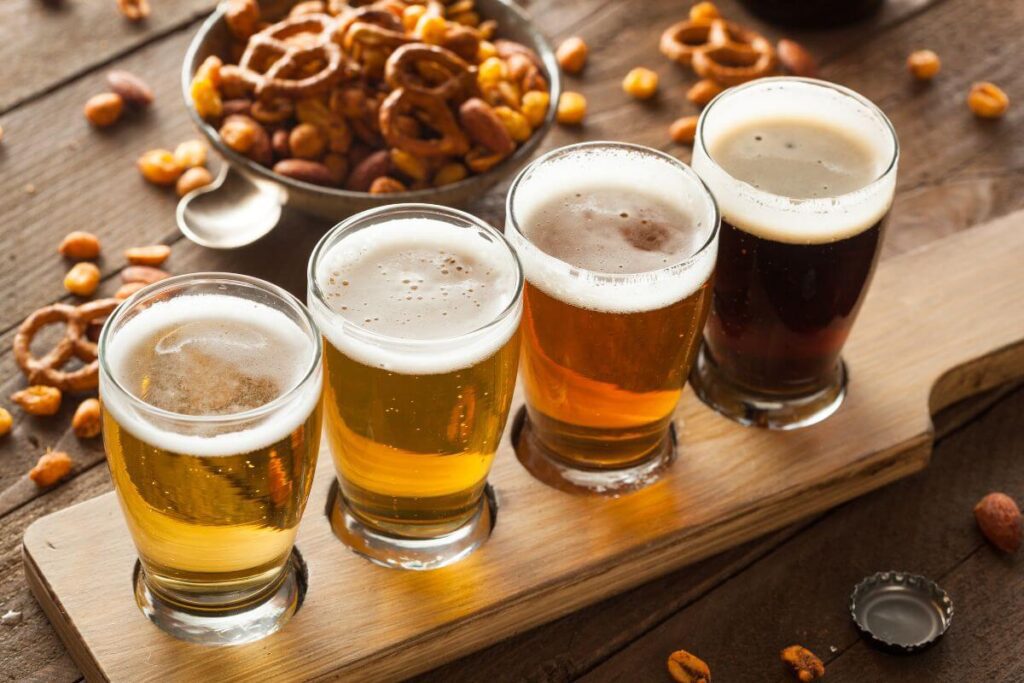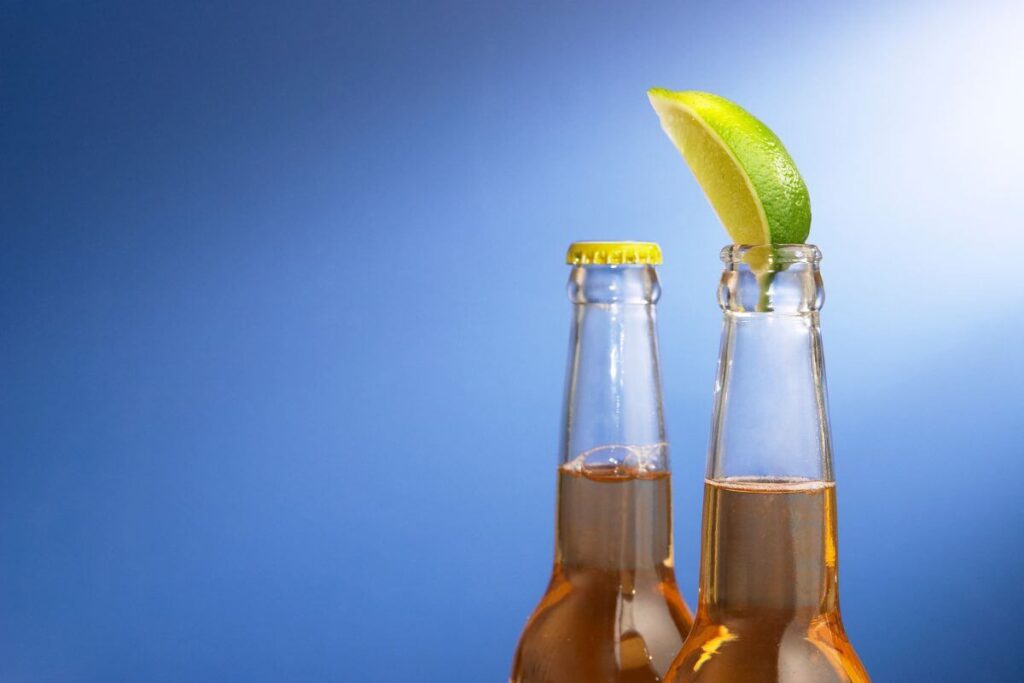Have you ever asked yourself who owns Modelo beer or other drinks? We often just drink beers, energy drinks, and other sorts of drinks without really thinking – Who owns these brands? You might have even drunk Modelo, Pepsi, or Celsius today and go on with your day.
But this beer deserves more. Modelo Beer, known for its iconic flavors and distinctive branding, has captured the hearts of beer enthusiasts worldwide. The journey of its ownership is a fascinating tale of business strategies, mergers, and market dynamics.
Modelo Beer boasts a rich history and complex ownership structure. This article dives into its journey, highlighting key players and pivotal events.

Modelo beer ownership: Early Beginnings and Grupo Modelo
The story of Modelo Beer begins with Grupo Modelo, a brewery founded in 1925 in Mexico City. The company quickly rose to prominence with its flagship brands, Corona and Modelo Especial.
Grupo Modelo’s product line and market exploded over the years, making them a powerhouse in the Mexican beer industry.
Modelo Especial and Corona, in particular, became synonymous with Mexican beer culture. Their success wasn’t confined to Mexico; these brands gained international acclaim, particularly in the United States, where they became the top-selling imported beers.
The Heineken and AB InBev Era
The ownership landscape of Modelo Beer began to shift significantly in the early 2000s. Seeking global clout, Grupo Modelo partnered with brewing giant AB InBev in 2008. This partnership marked the beginning of a new era for Modelo Beer.

2012 marked a big move for AB InBev as they bought out the rest of Grupo Modelo for a cool $20.1 billion. Grabbing these popular brands (Corona, Modelo Especial, Pacifico), AB InBev aimed to solidify their global beer market position. Specifically, they sought to leverage Grupo Modelo’s strong presence in North America.
However, this acquisition triggered concerns from regulators, especially in the United States. They feared AB InBev’s dominance could stifle competition.
To address these concerns, AB InBev agreed to sell Grupo Modelo’s U.S. business to Constellation Brands, a leading beverage company, for approximately $4.75 billion.
Constellation Brands and the U.S. Market
Constellation Brands, already a significant player in the beverage industry, saw an opportunity to enhance its portfolio with the addition of Grupo Modelo’s brands.
The acquisition included the exclusive rights to import, market, and sell Corona and other Modelo brands in the United States. However, this strategic move by Constellation Brands allowed them to capitalize on the growing demand for Mexican beer in the U.S. market.

Under Constellation Brands’ ownership, Modelo Beer experienced significant growth in the United States. The company threw a lot of money behind marketing and distribution, making sure Modelo Especial and Corona were everywhere you looked – in retail stores, bars, and restaurants across the country.
AB InBev’s Global Dominance
While Constellation Brands managed the U.S. operations, AB InBev continued to control Grupo Modelo’s global business. This dual ownership structure allowed both companies to focus on their respective markets and leverage their strengths.
AB InBev, headquartered in Leuven, Belgium, is a brewing giant with an extensive portfolio of over 500 beer brands. The company’s global reach and resources enabled it to expand Modelo’s presence in international markets, particularly in Europe, Asia, and Latin America.
So, Who Owns Modelo Beer now?
Two companies own the Modelo beer brand, with ownership divided by region.
In the United States, Modelo is owned by Constellation Brands, led by CEO Bill Newlands.
Constellation Brands, led by CEO Bill Newlands, owns Modelo in the United States.
Retailers wishing to distribute Modelo outside the US must contact Anheuser-Busch InBev, while those within the US should reach out to Constellation Brands.
In 2012, Anheuser-Busch InBev sought to acquire the remaining stakes in Grupo Modelo. By June 2013, Grupo Modelo’s US operations were sold to Constellation Brands, though AB InBev and Constellation Brands retained their own distinct distribution rights, maintaining separate control over their respective markets.
Challenges and Market Dynamics
Despite the successful expansion and strong market presence, Modelo Beer faced challenges typical of the brewing industry.
Changing consumer preferences, economic fluctuations, and increasing competition from craft breweries and other alcoholic beverages required constant innovation and adaptation.
AB InBev and Constellation Brands responded to these challenges by introducing new product variants, such as Modelo Negra and Modelo Chelada, catering to evolving consumer tastes.

Additionally, both companies invested in sustainability initiatives and community engagement to enhance their brand reputation and build loyalty among environmentally conscious consumers.
Modelo Beer Will Continue its Growth Journey
Modelo Beer is well-positioned to continue its growth trajectory in the future. The brand’s strong heritage, combined with the strategic efforts of AB InBev and Constellation Brands, ensures its relevance in an ever-changing market.
AB InBev’s global distribution network and marketing expertise will likely drive further international expansion, introducing Modelo Beer to new audiences worldwide. Meanwhile, Constellation Brands’ focus on innovation and consumer engagement in the U.S. market will sustain its popularity among American beer drinkers.










